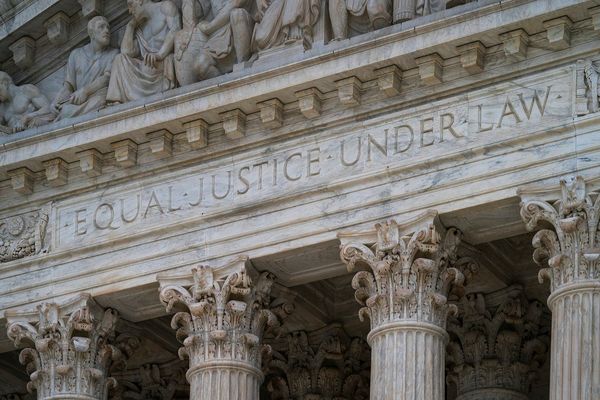
You have to have sympathy for Treasurer Jim Chalmers. According to the latest Essential Poll, less than a quarter of respondents think his federal budget will be good for them personally, just 26% think it will “help relieve cost-of-living pressures”, and only 29% think it will “keep debt under control”.
The latest Westpac-Melbourne Institute Consumer Sentiment Index recorded a huge drop of 7.9%, half of which the survey attributed to the “disappointing” budget. All this despite Chalmers delivering the first budget surplus in 15 years while providing $14 billion in cost-of-living relief.
Australian voters are a tough crowd.
Even among political insiders and vested interests, critics of the budget were legion and enthusiasts thin on the ground. From the left, Greens Leader Adam Bandt dismissed the budget as a “betrayal of jobseekers, renters, and everyone doing it tough”. From the right, Opposition Leader Peter Dutton railed that “middle-income Australians won’t receive one cent” and that Labor “can’t manage money”.
These denunciations tell you everything you need to know about the budgetary dilemma Chalmers faced. His challenge was to meet three objectives that were irreconcilable: to spend much more money than he did on welfare for the vulnerable; to provide much greater cost-of-living assistance to “middle Australia”; to do both in an “economically responsible” manner.
Crucially, the latter meant both balancing the budget and not increasing taxes. Self-evidently, such an outcome was impossible. Compromise was unavoidable and that’s what Chalmers’ budget gave Australia. Many people may not have liked it, but no one should have been surprised.
Shedding the ‘debt and deficits’ brand
Rightly or wrongly, the Coalition has been successful for years in branding Labor as poor economic managers, as the party of “debt and deficits”. Prime Minister Anthony Albanese and Chalmers recognise how damaging this has been in past elections and how advantageous it will be if they can reverse the branding.
Inevitably, this goal affects Labor’s fiscal manoeuvrability. Absent another pandemic or financial crisis, a budget blowout and a return to massive deficits would risk making Labor a one-term government.
How then to fund the party’s wish list for more social welfare spending and better public services? The obvious answer is higher taxes. But that’s another area where Labor’s manoeuvrability appears seriously constrained. Many in the party still bear the scars of the 2019 election when Labor offered voters a policy platform with multiple tax increases. It didn’t end well.
Cancelling the stage three tax cuts legislated by the previous government (with the support of Labor) would generate enormous tax revenue. However, Albanese explicitly ruled that out in the 2022 election campaign.
It might be argued that economic circumstances have changed, and so too should Labor’s policy. However, since the election Albanese has doubled down on his commitment. At this point, to cancel or amend them would invite an avalanche of criticism for broken promises.
It’s easy to say it must be done, but Albanese understands the danger.
This is a classic case of “Juncker’s curse”. Jean-Claude Juncker, former PM of Luxembourg, summed up the policy challenge faced by governments: “We all know what to do, but we don’t know how to get reelected once we’ve done it.”
And make no mistake, reelection is high on Albanese’s agenda.
What’s the next move?
That leaves Chalmers in a difficult position. Between avoiding unpopular tax increases, keeping election promises, and delivering responsible economic management, he doesn’t have much fiscal room to move.
Unfortunately, these constraints couldn’t have come at a worse time for the government. The expectations of Australian voters have never been higher. The COVID-19 pandemic created a widespread taste for — and expectation of — generous government support. Many people look to the government to cushion them against the latest shock — high inflation and rapidly rising interest rates.
But Labor will have to be selective in providing government support. In the current budgetary environment, its focus must be on helping the most vulnerable. Largesse for “middle-income” Australians will be strictly limited. And this creates a messaging problem for Albanese and Chalmers.
They need to show empathy for the plight of middle Australia but not so much that they look mean in holding back financial relief. A delicate balancing act, and one fraught with political risk in a nation where elections are won in the centre.
Dutton is seeking to foster discontent in middle Australia, to tell “ordinary Australians” they’ve been abandoned. Expect to hear the opposition reprise the old tropes about “lifters” and “leaners”.
Bandt is pushing a similar theme of abandonment. Unlike the opposition, he’s offering a solution: substantial tax increases and major economic redistribution. But it’s apparent Albanese thinks that’s not a policy agenda that offers him a clear path to a second term in government.
However, if Labor isn’t prepared to raise taxes or cut spending, Chalmers won’t need to be a responsible economic manager. He’ll need to be an economic miracle worker.







